
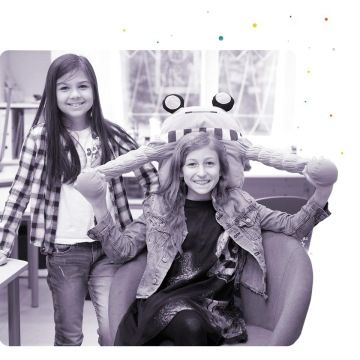
SCHOOL PHILOSOPHY
The place for the most important people in the world.
We respect the individuality, talents and specific needs of each child. All our effort is driven by their interest, educational needs and preparation for their future successful career.
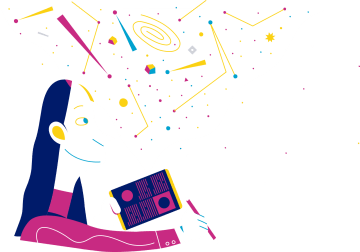
Educational programme Tree Rings
The name of our educational programme “Tree Rings” includes an apt symbolism. We start with our children with the things seen around us and then proceed to more distant, more general, and more abstract subjects.
Each topic has also further layers that define the level of child’s knowledge – from the first layer “I am starting” up to the fourth layer “I am an expert and can also assist to the others”.
The objective is to provide children with optimal conditions for development of uniqueness of each of them throughout the study.
The way to know the world as well as myself
Uniqueness, inner motivation, (self-)knowledge, flexibility, adaptability. These are the values of our educational programme, the approach of our teacher, and the environment of our school. We work with strengths and weaknesses of each child, respect individual dynamics, energy and work pace. We teach children how to learn and set own goals, to be able to look for own way and learn from mistakes.
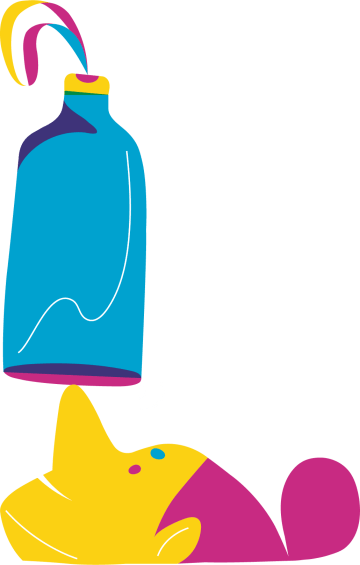
Small Class Groups, Big Opportunities
A smaller number of children in the classroom allows teachers to respond to each one individually and support them in their daily activities. At the same time, the teacher can build a deep personal relation with each child, become his emphatic supporter and mediator of experience.
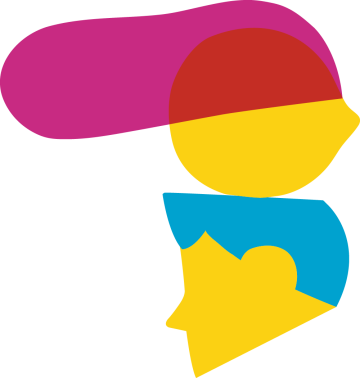
English on the level opens endless opportunities for children
We emphasise communication skills not only in Czech, but also in English. We consider it a natural part of life in Square, therefore it is included in the programme from the first grade. Thanks to native speakers also in the role of sponsors of some projects and tasks, children use the languages completely naturally also beyond the educational programme.
A mature individuality graduates from primary school Square
A primary school graduate is a competent young person who can present and defend himself/herself in personal and professional life. He/she has emotional intelligence, team competence, communication and reflection competences, fluently communicates in English, and can hold responsibility for taken decisions.
YOUR QUESTIONS
What are your frequently asked questions?
Like in Bambíno kindergarten, our basis is to develop children in all ways – intellectual, emotional, with respect to an individual. We motivate them to the performance naturally. Our objective is that the school is left by children who are free, soundly thinking, responsible for own behaviour and acts, and ready for today's world. Everything in a way respecting individuality and freedom, but also setting rules and limits. We educate young people so they like learning, are happy, while still achieving desired results.
The school educational programme is composed so that the achieved knowledge and competences are interlinked and children can use them in various areas of education. It encourages the children’s inquisitiveness and widens their horizons in areas of interest.
The Square programme connects the world surrounding the children and their current understanding of the world. In the first grade, we start with research of the closest family, home and surroundings; then in the next grades, the area of activity spreads to the city, country, Europe, world and universe. Development of the Earth and human is the framework of the educational programme in the upper primary school.
In the work with children, we respond to their dynamics and needs and teach them that making a mistake is the way to further searching, changes and another solution. To avoid theorising about real and particular matters from the world around us, we include a number of workshops and projects at school and out of it (museums, galleries, excursions to countryside, etc.) into education.
Our aim is that a school graduate finds their solid place in the real, diverse world – he/she should be a person who can interconnect theoretical and practical knowledge, can think critically and can present own opinions and ideas.
In addition to general knowledge based on PE GEP (primary education general educational programme), a school graduate will also have extensive experience coming from the logical connection of education to the real world. We believe that own experience is much more valuable than the sole theoretical knowledge. Just the connection of the knowledge with the possibility of its real application can provide children with a clear and specific idea of the area they want to focus on and teaches them to search connections among particular areas.
Our graduate will be equipped with rich language skills, especially in the English language (included from the 1st grade) that is a natural part of education in school, and later also another foreign language.
We assess many aspects of teachers. In addition to the professional preparedness also the level of soft skills, respecting approach to children, creativity in creating activities for children, organisation of work, educational approach, flexibility as well as their personal approach in case of unexpected situations.
Every human is unique and that’s also the way how we handle education. We put great emphasis on the selection of pedagogues, especially for their ability to respect the uniqueness, individual needs, and the working pace of each child.
We offer various methods of working with children. We believe that various kinds of activities and practical connection between the education and reality will result in better understanding of the given subjects by children with any needs. Talented children may choose the “expert level” of knowledge and proceed in their own pace; our well-prepared programme certainly allows this. To the contrary, children with specific disorders or integrated children may choose the basic level in various areas and choose their extension in areas of their interest.
If needed, children can access re-education lessons through our counseling center. Pedagogues will consult potential individualized settings of education for children with SENs with the advisory centre as well. If a situation requires so, we will start cooperation with other advisory facilities or specialists.
Professional supervision at school is provided by the school advisory workplace Square Advisory Centre: school special pedagogue, crisis interventionist, prevention officer, and educational advisor. The advisory centre is available for the children, parents and employees. Assistants will be at school in accordance with the needs of children and pedagogues – personal assistant, pedagogue assistant.
Children have the doors of the director’s office, administration office and offices of all teachers in Square open. Children may come with their proposals, comments and concerns at any time. Nevertheless, our school has also its parliament, in which children from various classes and grades meet and together resolve the image and operation of our/their school. In larger projects, the school parliament works as a connector between the school management and pupils.
To understand things in the context – practical use of knowledge – to learn how to learn – motivation for self-development – art of reflection and self-reflection.
Thanks to the well-prepared educational programme, modern educational methods, (self-)reflection, and perfect pedagogues, Square works with children so that they understand things contextually, learn the things that, in relation to their age, can be used immediately, and have thus their own motivation, knowledge, and competences to make it. Here in Square, we consider it important to have children enjoying and liking education and wanting to develop themselves voluntarily.
Respect towards the others and individual approach are supported by our multicultural environment as such. However, we are one more step ahead and work actively with emotions of individual children as well as with the overall climate of both the classrooms and school. And this happens not only through the school culture co-developed with the children, but also through project links among children from various grades and the real world, and the well-prepared system of preventive programmes starting as soon as pupils begin to go to school.
Our goal is to allow children to use knowledge learned at our school during their entire lives.
Children will learn here how to learn, since it is one of the competences, which will always be needed. Therefore, education in Square runs in integrated subjects and projects so that children can obtain knowledge contextually and learn how to use them to the full extent.
There are areas prepared for each grade in Square through which are children guided during the year, and there is a mandatory foundation prepared for each area that shall be learned by all children to fulfil the competences mandatory for primary education. This foundation is specified by the school but children may select areas where they want to develop themselves beyond the framework of the offered basic education, based on own interests and possibilities (in cooperation with teachers and parents in lower grades) – thus we guarantee an individual approach to each child.
And since each child, like each adult, can manage some areas excellently, some well, and somewhere they need more assistance, children learn to assess themselves and the others to learn how to effectively give and calmly receive development feedback. Square supports “learning by mistakes".
Each has the opportunity to do own things. Therefore, children may select their Extra World from the 4th grade. If they find out later that the selected focus is not right for them, no worry, they have the chance to learn by mistake and may change their option after two years. The offer is continuously updated so they may choose from science, arts, another language, sports, etc.
In Square, we created our own system of evaluation that connects reflection from the teacher and self-reflection of the child.
The teacher’s reflection is a combination of percentage and verbal evaluation. The percentage evaluation has been chosen since we considered the conventional 1-5 scheme to be insufficient for individual evaluation. Each assessment in percentage is amended with a verbal evaluation so that both you and children know where they are good and where are areas for development.
The assessment also includes self-reflection by the child. Thus, we not only give children an opportunity to impact significantly what they want to focus on, but also an area where they can assess own skills and developments self-critically in an attractive and playful form. The reflection is so flexible that the child in cooperation with the teacher can build targets and projects that will be tailor made for them and support further areas of development, especially in soft skills that are particularly emphasised at elaboration of the school educational plan. At the same time, this self-reflection serves as feedback for parents who can see the achieved levels and those areas where the child is working on.
The reflection system was compiled with the awareness of the transition of children to high schools. The final assessment at the end of the year within the school certificate will be a summary of the gradual assessments from the whole year (percentage report with verbal evaluation), but also a transfer to the conventional mark system to arrange that the transition to any high school and other schools is easy and understandable without any problems.
Do not expect any sudden oral exams or written tests in our school. We do not want to catch children, we want them to understand the curricula and be able to use them practically. Thus, children know in advance when, why and in what form will be the “check of achieved knowledge”.
Both individual and team work is represented evenly in Square, both in education and in processing of home works. The home works are in the form of projects that are to be elaborated by children during the school year. These projects are prepared by children individually or in couples or teams – at the time and place as they decide on their own (at school, in the school club or at home). Each project is then presented to classmates.
Yes – children in Square are educated so that they experience or practice as many things as possible to understand the context. We believe that such experience will help them to better understand the context. At the same time, we know that the knowledge and competences obtained during such experience will be better processed and stored for being re-applied, when required so.
The Square school educational programme is composed of integrated subjects to maintain the interconnection of the curricula and logical relations to the surrounding world as we live it.
In Square, there are these mandatory subjects:
- The World of English – it includes grammar, linguistic aspect of taught languages (including foreign), as well as literature and essays.
- The World of Numbers – the subject dealing with solution of tasks, understanding of elementary mathematical operations, logical thinking, perception of spatiality of the world around us (the world is composed of geometrical shapes).
- The World of Changes – includes topics dealing with everything that changes in time or space – the history of the Earth, world, country, city, home in the changes of time, human development, etc. The World of Changes starts from the 4th grade.
- The World of Science – includes topics studying the immediate surroundings, its observation, etc., studying the world from the physical, chemical, biological and environmental aspects.
- The World of ICT – enhances the digital literacy and, among others, children discover here also the beauties of a block-oriented programming language or experiment with the spatial modelling of objects/structures for deep understanding of information from other Square Worlds. The World of ICT starts from the 5th grade.
- The World of Arts – includes practical and aesthetic perception of the world – fine arts, dance, music, theatre
- The World in Motion – the aim of this area is building of a positive approach to movement, regularity of active rest as an integral part of healthy lifestyle.
- Extra – children may choose their optional subject from the 4th grade. The offer changes and updates time to time. For example, there can be a selection from Extra science, art, another language, sport.
Here in Square, children learn English from the 1st grade. We consider English a natural part of Square’s life and that’s the way we handle it. In the upper primary school, we use English as a natural part of integrated subjects, projects and leisure activities. It is our goal that children achieve the B2 (FCE) level not later than in the 9th grade. Starting with the 6th grade, children choose the second foreign language.
And since the entire educational programme of Square is based on practical use of achieved knowledge, skills and experience, and since also native speakers who are sponsors of some projects and tasks work in our school, children use languages naturally, in a communicative method – also beyond the educational programme.
Primary school Square with its school educational programme Tree Rings intentionally develops all six basic competences summarized in PE GEP (primary education general educational programme).
Learning competence – via a system of milestones, children learn how to work with time and with information sources, they are offered methods of critical reading and writing to make them able to search for and process information in an efficient manner and to transform them into a transparent presentation. Children learn to look for associations, to link the information obtained with each other, and to apply it whenever and wherever required so. Children learn to discover their strengths and their learning style and thus to look for efficient ways of lifelong education. It supports their curiosity and helps them to work on their ability of setting their own goals. Children learn to observe, explore, experiment, and to summarize results of their observations into first-quality outputs.
Trouble-shooting competence – children learn how to apply critical thinking and how to look for various strategies of achieving their goals and resolving problems. There are several ways leading to the same goal, respecting procedures and opinions of the others and inspiring each other result in a broader view on the given problematic. The working methods also teach children how to argue adequately and how to present the bases found.
Communication competence – children in Square learn logical construction of their statements from the beginning of the educational process. They learn how to clearly express their needs and how to communicate with children of the same age and with adults. They learn how to communicate their findings and observations to their school friends, but also how to choose appropriate communication methods for presenting their works outside the school. Within the subject World of Art, they learn how to express their messages in all artistic movements, how to understand works influenced by the time flow and by thinking of people of the given period, and how to be independent at creating literature but also art-visual representation of subjects and at presenting them appropriately.
Social and personal competences – thanks to the approach respecting everyone's uniqueness, we teach children how to be tolerant to each other. We support their own development skills and help them to search their strengths. The activities performed by children at school are both individual and team ones. We accent basic rules and strategies at the team work, respecting different opinions, and the right for democratic atmosphere in the teams. At the same time, freedom without rules could result in anarchy, so we have to build personal responsibility for the given task and for the team role occupied. Methods used by adults working with children are supporting, respecting, and helping in building stable personalities and considering education as a chance of their development. The art of self-reflection and constructive feedback learned by children from their first day in Square is relating thereto too.
Civic competence – thanks to the multicultural environment and high-quality Tree Rings SEP, children learn to associate the knowledge obtained with the world around us from their first grade. They learn to understand functioning of ecosystems and impacts of everyone’s behaviour on our closest surroundings. If children have orientation in historical events, they can then understand some events of modern history that are logically based on such milestones. When discovering the world around us, children build their relations to their homes and try to affect them positively by their behaviours. Within the process of education, children explore and compare various cultures and religions, they learn to respect them and to understand uniqueness and differences as a part of everyday life.
Working competence – thanks to understanding the world connections, children understand and apply procedures helping to affect their neighbourhood positively. They bear responsibility for their decisions and accept their tasks with personal responsibility. They can apply and generalize the obtained knowledge. They have created a positive relationship to education and understand it as a lifelong process. They understand importance of the work, they’re not afraid of accepting their tasks, and, at the same time, they can relax efficiently. They understand the term burnout and apply prevention tools. Within the process of education, they learn financial literacy and know appurtenances of the basic contractual relationship, simple household budget, and money management. They build safe working and relationship environments and can efficiently protect themselves from inappropriate and hazardous behaviour and acting. At the end of the process of education, they are ready to decide and choose further education upon their own will and abilities.
Square is a primary school with all grades. We usually have one class with maximum 22 children in each grade from 1 to 9.
Education in Square starts at 8.30 a.m., but children may come to school from 7.30 a.m., when the morning club is available. In the afternoon, there is a school club until 6 p.m. The earliest time for pickup of children is from 2 p.m. (grades 1 – 3) or 3 p.m. (grades 4 – 9).
We are aware that modern technologies have become a natural part of everyday life. Our school is equipped with modern technologies like we meet them in real life. They are not a form of education but a tool for it – same as books, games, crayons or compasses. Both big and little people have an opportunity to use a computer, tablet, projector or audio system for their work or game.
We prepare children for the work with digital technologies already from the 1st grade and include preventive programmes into education, teaching the children to work with ICT safely and usefully.
From the 3rd grade, children use digital technologies in integrated subjects also for preparation of projects. From the 5th grade, they get familiar in details with functions of the digital technologies and with a programming language intended for children.
The programme is based on blocks during which children may drink or react to other basic physiological needs anytime. A break is scheduled between the blocks. A longer break for lunch and relax is included between the morning and afternoon blocks.
Thanks to the architectonic layout, each classroom is adapted for relax during breaks or even during the programme. When a child needs to be alone, there is always the possibility to rest in the relax room. Afternoon blocks are organised more freely, so there is more space for relax.
Meetings with parents are divided into several areas. At the beginning of the school year, parents are informed about all organisational matters related to the course of the school year and receive detailed information on the specific system of evaluation of their children that is done in Square in such a way that they know what they can expect and what space for independence and responsibility for own work and preparation they should leave to their children. It is natural that we continuously inform about happenings in the school (e.g. expeditions).
Twice a year, parents may attend N-partita – it means an assessment of the child that is participated by parent, child, class teacher, and also another professional, as applicable (school director, special pedagogue, etc.).
Another opportunity for meeting and interim feedback about the course of education is to arrange a personal meeting directly with the teacher or another school worker.
Of course, we are available for you. Before your decision, you may arrange a tour in the school and ask about everything you are interested in. Please contact us at ahoj@skolasquare.cz or by phone +420 602 633 310.
Healthy and diverse meals with options are important for us. We think about vegetarians as well as children with specific eating habits influenced by medical or religious needs. All day long water intake is naturally arranged as well.
The school regularly organises school in nature, swimming and skiing courses, sports courses, expeditions, performances and workshops for parents interconnecting classes, grades and parents. Furthermore, each class has its own annual budget that can be used for trips, excursions, lectures etc., as they wish.
Parents may get involved in Square life as they wish and can, from participation at various events organised for them by the school to their co-organisation, to the membership in the school board where they can directly contribute to the school administration.
The school offers a wide portfolio of services. The educational programme itself can be extended every workday as much as until 6 p.m. and can be amended with various courses (educational, sports...) organised by the school, or regular afternoon clubs.
It is possible to use extended services of the special pedagogue, speech therapist or psychologist in the school advisory centre.
Within education, our partners include the non-profit organisation Step by Step ČR, through which we have achieved skills in the programme Start Together. Now we pass these ideas further in the school. Cooperation with the European School Education Platform is also important for us, as it enables international cooperation of schools all around the world.
We have been cooperating also with the company Sport Kids that organises sports courses for children. The canoeing course is tailor made for us by CVOK.
We guide Squarers to empathy, kindness and helping, therefore we participate various charity projects every year. We have been supporting the Shoebox project organised by Diakonia already for several years. We actively participate the Kindness Day. We have repeatedly supported the Diakonia project – construction of Daniela house for adult autists, endowment fund of children’s oncology “Krtek” and others.
By the children’s donation project through Pro-Kontakt, we are helping Sheldon to make his dream come true – to finish school.
AFTER-SCHOOL CLUBS
Who still doesn't want to go home
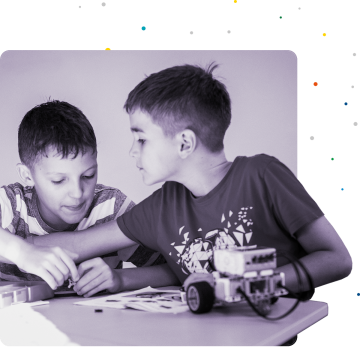
In Družina we welcome all children from the first grade of the primary school. Each week we start with a new topic, which we learn about in a fun and action-packed way with lots of interesting facts. The child can decide whether to pursue the topic further and in more depth. Squarers learn how to work in a team, allocate their time and make the most of their strengths. In the afternoon after-school program, children have the opportunity to improve their English naturally through communication with native speakers.
In the second grade School Club, we give Squares the opportunity to work together on long-term projects, use the classrooms as study rooms, and spend time together after school.
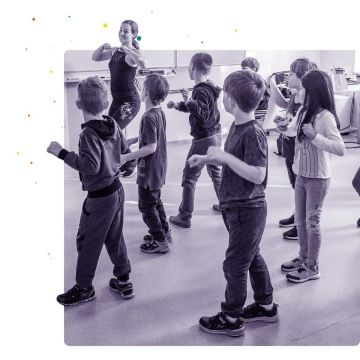
CLUBS
Languages? Arts?
Everybody can choose.
We offer a wide range of clubs where children can enrol at the beginning of each semester. The offer of the clubs is regularly extended and updated based on wishes of our students. Every semester we start only those clubs with sufficient number of applicants.
List of Clubs
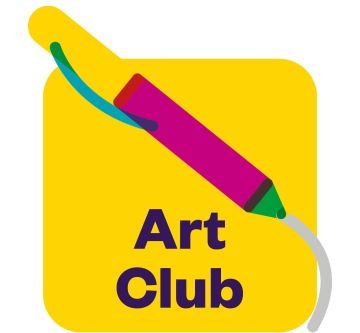
MON 3:00–4:00 PM / CZK 4,300
Grades 1–3
A creative space for young artists who enjoy drawing, painting, and crafting. Children will explore various art techniques, learn to work with colors and different materials, and develop their imagination. The club supports aesthetic perception, patience, and the joy of creating something of their own.
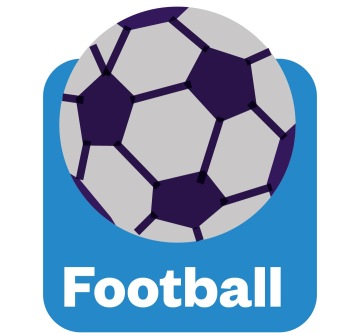
MON 3:00–4:00 (younger pupils) / CZK 3,700
MON 4:00–5:00 (older pupils) / CZK 3,700
The football club is a sports activity focused on developing technical, tactical, and physical skills for children and adults. Participants will work on basic football skills such as ball control, passing, shooting, and defending, as well as teamwork, strategic thinking, and fair play. The club is suitable for all age groups, from beginners to advanced players who want to improve or simply enjoy movement and fun. The goal is to develop not only football abilities but also team spirit and discipline. The club meets regularly in a friendly and welcoming environment.
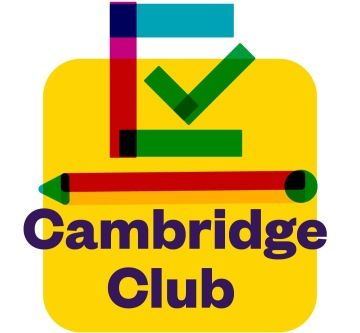
A2: TUE 2:45–3:45 PM / CZK 5,200
B2/C1: TUE 3:30–4:30 PM / CZK 5,200
B1: WED 3:30–4:30 PM / CZK 5,200
The Cambridge Club focuses on Cambridge Education – with more reading, writing, speaking, listening, and preparation for Cambridge exams. Pupils will get familiar with the test format and improve their English skills.
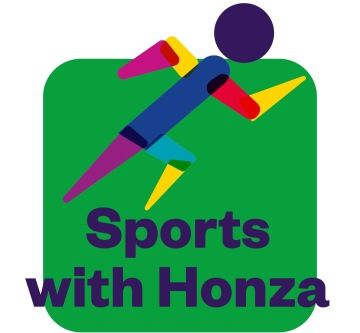
TUE 2:00–3:00 PM / CZK 3,700
Grades 1–3
A sports club led by a national athletics champion. The club focuses on improving physical fitness, coordination, and overall motor skills.
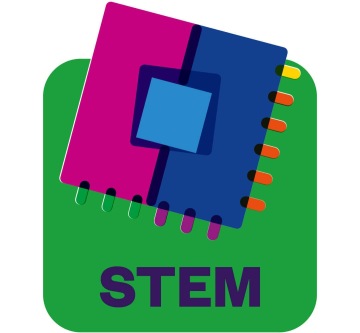
full capacity:
TUE 3:00–4:00 / CZK 4,500
full capacity:
WED 3:30–4:30 / CZK 4,500
The STEM (Science, Technology, Engineering, Mathematics) club focuses on developing creative thinking and practical skills in the fields of science, technology, engineering, and mathematics. Participants will explore various topics such as robotics, programming, 3D printing, electronics, and basic physics and mathematics through interactive projects and experiments. The club is designed for anyone interested in technology and eager to learn how to solve problems and create innovative solutions. The goal is to develop logical thinking, teamwork, and improve technical skills in a fun and inspiring environment.
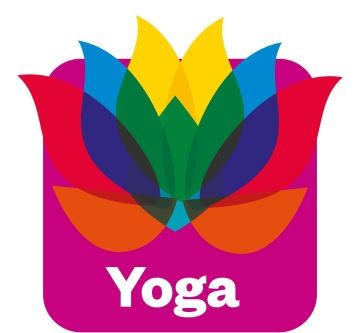
full capacity:
WED 2:00–3:00 PM / CZK 3,700
Grades 1–3
Yoga club is an ideal choice for all kids who want to improve. Their physical and mental health, relax their mind and gain energy. The club is suitable for beginners and for advanced as well. The club is led by an experienced and certified teacher.
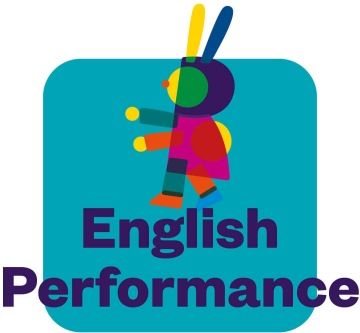
full capacity:
WED 3:00–4:00 PM / CZK 3,700
Grades 1–3
Pupils will get to know famous authors – from William Shakespeare to Julia Donaldson. They will read and watch age-appropriate adaptations of their works and then perform them themselves. They will also talk about how to memorize lines, how to sound like native speakers, and more. Regular performances for parents and classmates are planned.
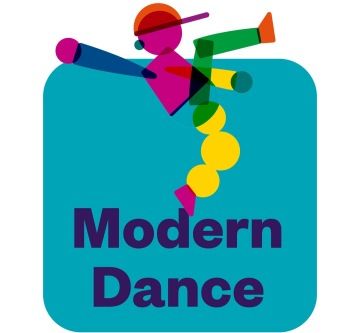
WED 3:00–4:00 PM / CZK 3,700
for girls Grade 1–2
Join our dance club focused on modern dance and creative movement! This club is perfect for children who want to explore modern and contemporary dance styles while creating their own choreographies. Children will learn modern dance techniques, how to work with space and rhythm, and will develop their creative thinking through their own dance creations.
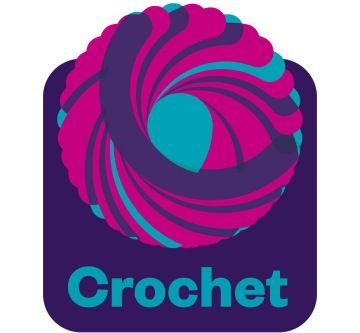
WED 3:30–4:30 PM / CZK 4,500
Grade 2 and up
In the Crochet Club, children will learn the basics of this traditional handcraft technique. They will work with various types of yarn and hooks, master both basic and more advanced techniques, and create their own original items – from simple decorations to fashion accessories. The club helps develop fine motor skills, patience, and creativity in a friendly and welcoming atmosphere.
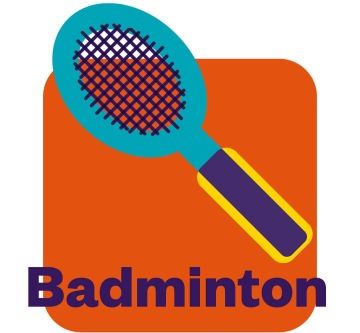
WED 3:30–4:30 PM / CZK 3,700
Grade 1 and up
Players will learn the basic badminton strokes, such as smashes, drops, and clears, and become familiar with the rules of the game. The club is designed for all age groups and skill levels, from complete beginners to more experienced players. The goal is to improve physical fitness, coordination, and teamwork — all while having fun on the court.
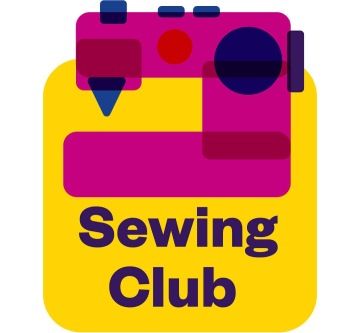
WED 3:30–4:30 PM / CZK 4,500
Grade 5 and up
Students will learn both basic and more advanced techniques of hand and machine sewing. They will work with needles, thread, buttons, and sewing machines to create their own original pieces – from fabric accessories and small pouches to simple outfits. The club helps develop fine motor skills, patience, creativity, and a sense of detail. All activities take place in a calm atmosphere with a focus on the joy of making things by hand.
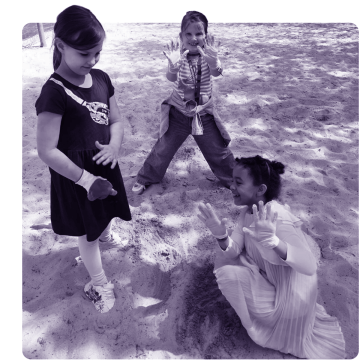
Academy of the Curious
A new space for discovery!
We are launching the Academy of the Curious at our school – a unique program for children who want to get to the bottom of things, explore in depth, and enjoy the joy of discovery.
In the Academy, children encounter research challenges, logical games, and interdisciplinary projects. They work in small groups with an individual approach and develop ideas together that go beyond regular lessons. The program is professionally supported in cooperation with Mr. Václav Fořtík and his testing center, which has long specialized in diagnosing and developing gifted children: www.centrumnadani.cz.
Children are selected based on recommendations from the school’s counseling team and teachers, who recognize their curiosity and have been trained by mentor and guarantor Václav Fořtík. All communication with parents is ensured, and they are kept informed.
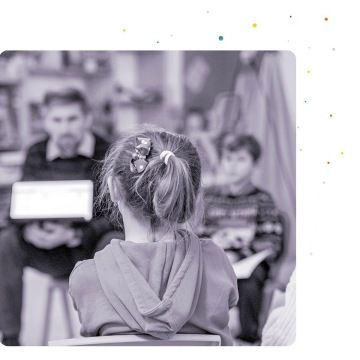
Square Student Parliament
The Student Parliament aims to actively involve students in the life of the school. Representatives of the school parliament from grades 2-9 meet up regularly to address suggestions on what to improve in the school and how to transform the school environment and atmosphere for the better. They learn how to have open communication between students, teachers and school management. The Student Parliament organizes events and projects that strengthen the safe social climate in the school, and helps to improve the life of the community of Prague 4 and the public. Last but not least, it develops a number of competences that may be useful for children in their future professional and personal life.
DOWNLOAD DOCUMENTS
DOCUMENTS FOR PARENTS
Are you interested in more
or do you want to come
to see us?
Please write to ahoj@skolasquare.cz, or leave your contact data and we will contact you.
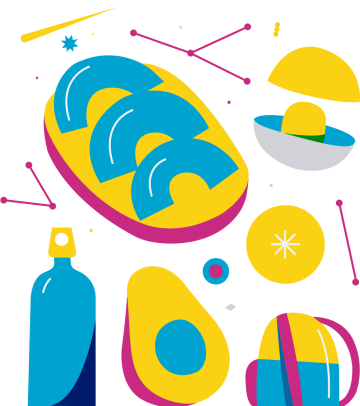
Základní škola Square s.r.o.
Svatoslavova 6, Praha 4 – Nusle
